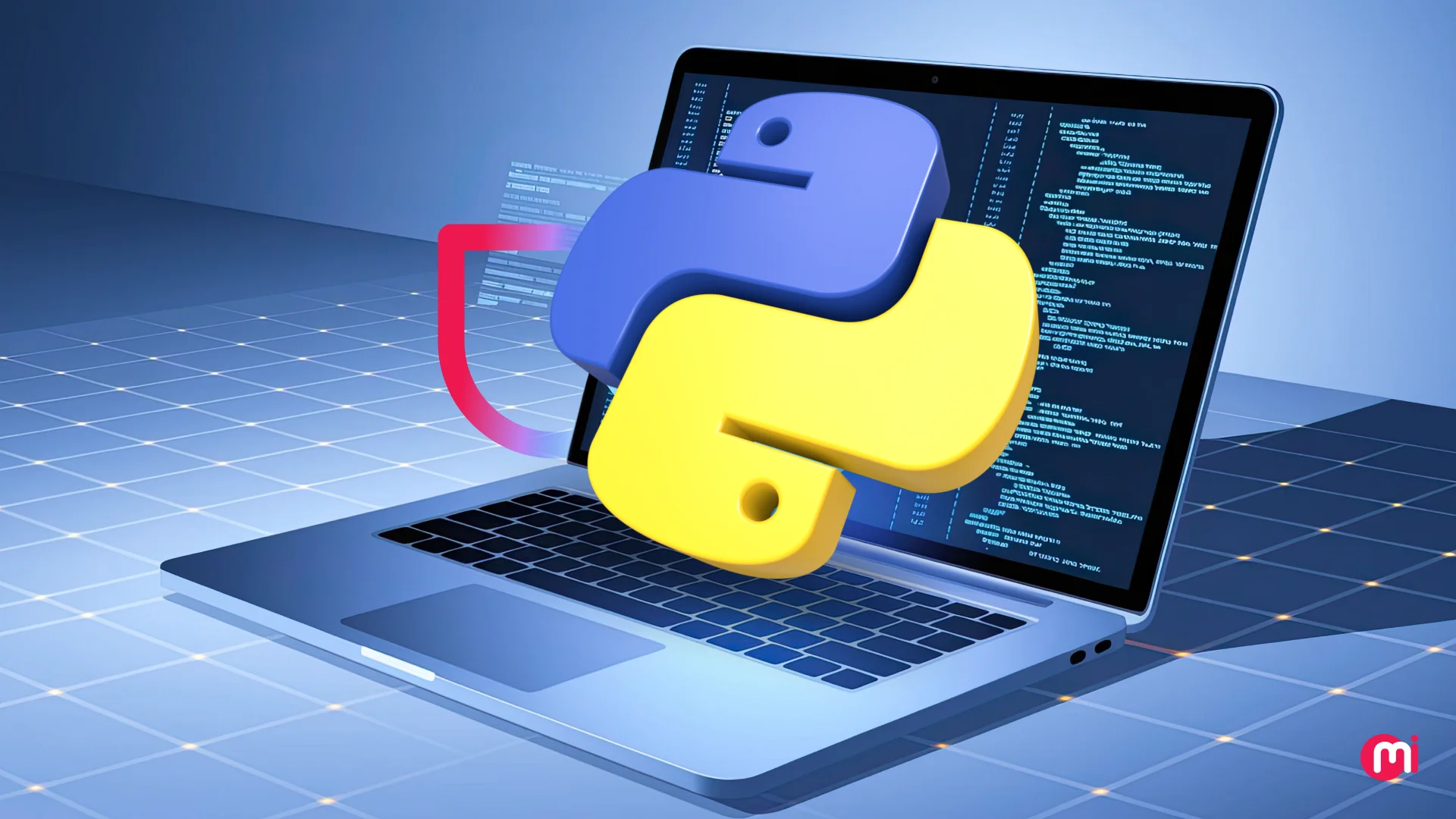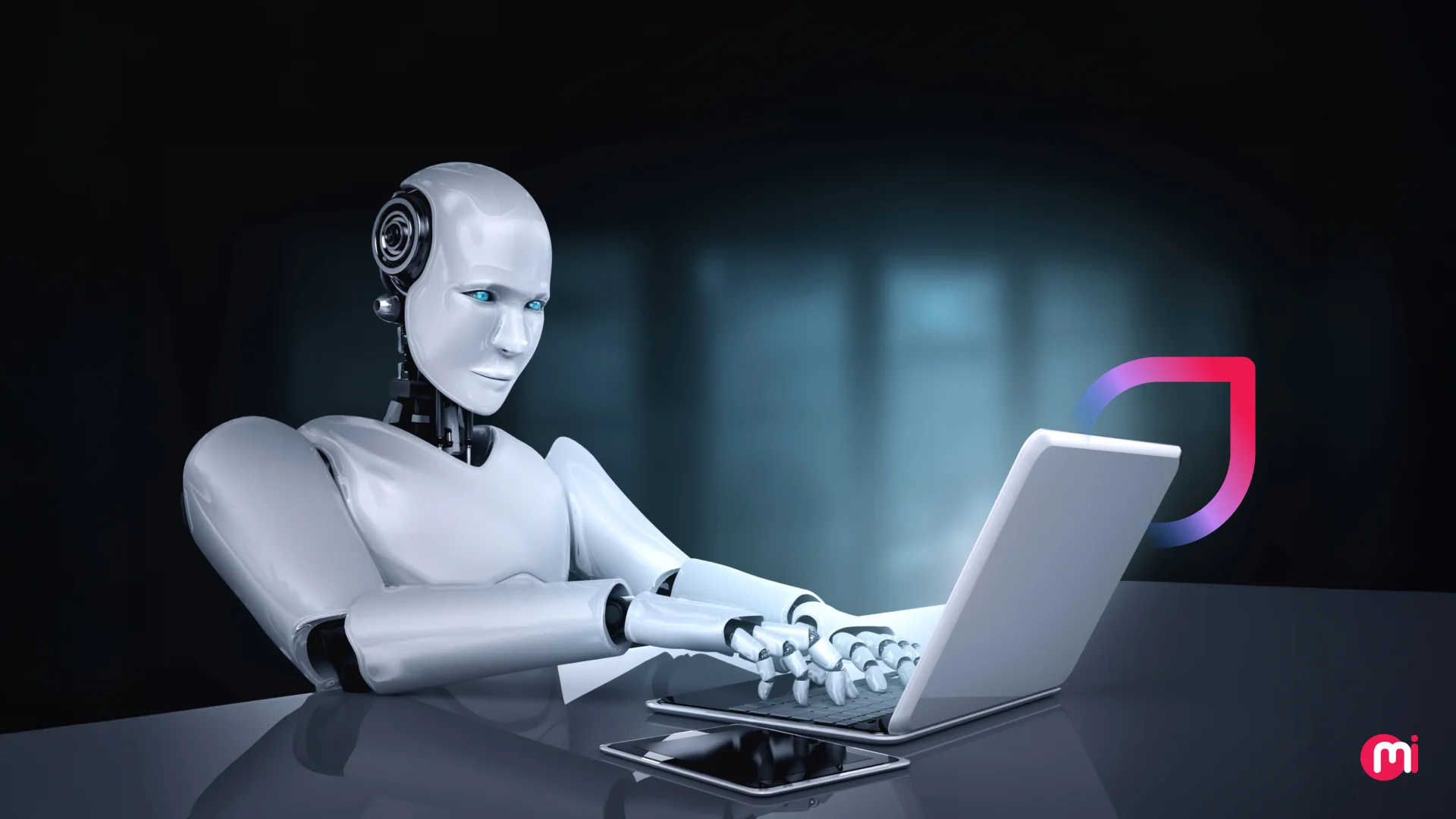Why Top Firms, From Amazon to Tesla, Are Investing in AI and Business Process Automation?
- AI/ML
- November 11, 2024
The blog discusses how AI is revolutionizing business process automation, aiding in streamlining operations amid increasing competition. It covers various AI applications, including productivity enhancement, big data management, sales optimization, customer support, recruitment, cybersecurity, compliance, and expense management. It also touches on key implementation considerations and envisions a future of integrated automation technologies.
It’s a difficult time for businesses to think about their survival as many new businesses are emerging and quickly rolling out creative business strategies. With the market competition getting intense, businesses need a quick, reliable solution to streamline their business-critical processes. And that’s where Artificial Intelligence comes to the rescue.
Whenever we hear Artificial Intelligence (AI) and intelligently-powered process automation, we first think about the crazy Hollywood Sci-Fi movie – Iron Man, in which our favorite Tony Stark is calling out J.A.R.V.I.S. to suit him up and do so many things. (Well, there are other movies as well!?)
The thing is, this kind of AI-powered Robotic Process Automation is yet to be implemented, which would take certain years to achieve. However, with time, Artificial Intelligence has been evolving as the mainstream technology across many industries, especially in automating crucial business processes.
See the AI market predictions mentioned below for better confidence:
- As per the Gartner survey, around 20% of business leaders (responders) highly affirm investing in AI automation as another AI trend evolving in industries for invoicing and contract validation.
- One Forbes study confirms that around 40% of Sales and Marketing departments of industries show interest in AI investment.
- The O’Reilly survey received 48% of votes in the favor of businesses extensively using AI, ML, and Data Analytics, for data quality checking.
- As per Semrush’s research, around 80% of business executives expect the retail industry to invest in AI-power intelligent automation by 2027.
- The current industrial automation market is wide and getting growth in AI intensity across the overall trajectory. Hence, one survey predicts the industrial AI automation market to grow to $289 billion by 2028.
So, the question is, “Why is AI automation becoming so popular across global industries?” Well, that’s the main purpose of creating this blog to highlight the importance of AI process automation across businesses.
Before we start listing the benefits of AI-powered automation for different business roles, let’s first understand the topic.
What is AI-Powered Automation?
When doing data management and using them as an asset are the major concerns of businesses, many firms are using RPA (Robotic Power Automation) for big data analysis. But the thing is, RPA widely deals with structured data, which cites its limitations.
Hence, to bridge that data structure-based processing barrier, AI comes to the rescue. AI helps to convert unstructured data into structured data in a way RPA can easily understand.
And when Artificial Intelligence (AI) and Robotic Process Automation (RPA) team up, it creates a new solution called AI-Powered Automation or Intelligent Business Process Automation, which scales up businesses to the next level.
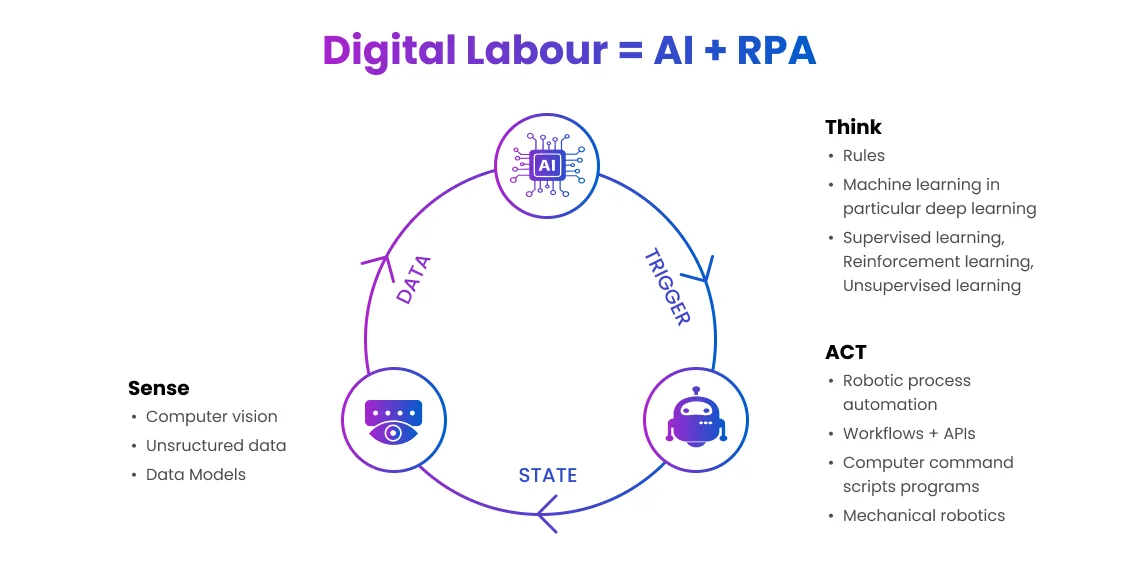
AI-powered automation is a kind of closed-loop automation process where data is analyzed at scale to identify different data patterns, create insights, and use it to automate business-focused processes with speed, accuracy, and at a lower cost.
At last, we could say that, while traditional, manual processes limit company growth potential at certain limits, AI-powered process automation – an intelligent combination of AI and RPA, reduces those limitations.
How Are Businesses Using AI Today?
Many corporate professionals fear AI as it might replace human intelligence, but don’t worry, that’s not the case. In fact, artificial intelligence is much like acting as the major supporting role for the employees with process automation, boosting productivity by using big data insights intelligently.
Businesses use AI in numerous ways but by highly considering it as a growth factor. With the adoption of Artificial Intelligence and Machine Learning, businesses are enjoying the benefits of the applications:
- Intelligent process automation for better-improved performance efficiency
- Ensuring the consistency of deliverables
- Making the right use of data for better, informed decision-making
- Creating new market opportunities with intelligent marketing and sales funnels.
Lacking AI startup ideas to make a profitable investment? Browse through this blog to get a crystal-clear view of AI business ideas to invest in and maximize ROI and business growth!
To know more about the applications and benefits of AI automation in businesses, let’s move to the next topic, “Ways AI process automation benefits businesses.”
Reasons Why Your Business Needs AI-Powered Process Automation
In one survey by McKinsey, around half of the business procedures could be automated. Of course, as businesses are going through a drastic paradigm shift, there are many implications waiting for businesses to overcome. Indeed, regardless of the challenges, this shift in the business will change the way departments are processing.
As automation is involved in it, all mundane tasks would be performed by digitally programmed robots, allowing employees to focus more on value-adding tasks.
If seeing through a business perspective, the following areas will achieve great improvement due to the adoption of AI process automation:
- Big Data
- Productivity and Procedures
- Sales and Marketing
- Recruitment
- Customer Service Centers
Now, let’s dive into the ways AI-powered automation benefits businesses:
1. Smooth Big Data Management
The rise of the digital world has been a great source of enormous data generated from every corner of the world, which we know as big data. Seeing the potentiality of data, becoming the success-driving force for businesses through innovations, productivity growth, better decision-making, and customer success plans, business leaders have to lay their anchors in the ocean of intelligent Big Data management.
As the continuously stacking up data is being used as information for industries to make further insightful decisions, it is appropriate to call big data – an anchor to the present and future opportunities. Indeed, big data is the key to success, but managing it smartly, is the big hurdle every business faces.
That’s where AI-powered process automation comes to businesses’ rescue while helping them process the data, discover the data patterns, convert the unstructured data into structured one, and drive insights to draw better conclusions.
Moreover, you also want to know, “which data analysis methods are used to drive insights from big data?”
Here’s how big data is managed and used to drive better business values:
- Descriptive Analysis: It analyzes past performance data and studies reasons behind failures and successes to predict future approaches.
- Regression Analysis: To model the relationship between dependent and independent variables. It helps to predict the right product price by considering all variables. Regression analysis is widely used by businesses for data-driven marketing, financial forecasting, and so on.
- Factor Analysis: It is highly used in researching variable relationships for topics like socioeconomic status and psychological scales. It extensively helps in clustering and data classification procedures.
- Discriminant Analysis: The most powerful data classification analysis to distinguish the data groups. Its applications are: classifying credit card applications under low-risk and high-risk categories, medical studies, classifying a list of customers of newly launched products, etc.
- Time Series Analysis: Helps to model the time-dependent data series with the necessary information to draw out insights (like AI statistics, rules, and patterns).. Highly used in stock market data analysis scenarios to predict future market growth scenarios.
- Artificial Neural Networks: In big data management and specific data mining, artificial neural networks have a broad use case to deal with noisy data with high-accuracy results. Business applications: forecasting and classifications.
2. Improved Business Productivity
The prime reason behind every business’s decision towards implementing AI and business process automation is to achieve better business operations efficiency.
Flawless Automation of Repetitive Tasks
Intelligent process automation is all about letting software robots perform repetitive mundane tasks by offering humans to do other competitive tasks, resulting in increased business productivity.
If the software is programmed with high configurational logic, it performs tasks with utmost accuracy and not so human errors. As there’s no error in the process, no further consequences and your business can benefit the most from intelligent automation.
One case study on AI-power RPA reveals its efficiency in improving data quality for extraction and manipulation with around 99% accuracy, which is way better than manual data processing with 62% accuracy.
Data-Driven Processes
We all know that data is the biggest asset for today’s businesses. At the latest, around 48% of businesses are utilizing AI to observe, process, and monitor big data patterns and extract knowledge from the existing data logs and coming data to improve the process.
This operation is also known as process mining, enabling businesses to optimize current business processes by making factual decisions.
3. More Revenue with Product Recommendations
Nowadays, the eCommerce market is highly preferred by most digital users as it allows people to do shopping at their convenience with so many discounts and benefits. Also, eCommerce stores are becoming intelligent with the help of AI to study users’ behaviors.
Yes, that’s right! And we all know this somewhat. Today’s eCommerce stores are powered by artificial intelligence and big data analytics abilities. Both together analyze every upcoming data from the clients’ side to know the products they are keeping an eye on, why they are constantly coming back and abandoning the shopping carts, etc.
With this data analysis, AI learns about the buyers’ behaviors and sorts products to recommend them recurrently until they complete the buyers’ journey.
“For instance, when you are looking for shoes to buy online, you visit so many online stores (Amazon, Myntra, etc.) and end up choosing a couple of shoes. But at the time of checkout, you might have second thoughts about whether you should buy them or not. And with that confusion and price comparison, you abandon the cart.
After some time, when you revisit that eCommerce site, it will suggest those products in the first fold with some related other recommendations. Some will also show limited-period offers for that product. On average, with 2-3 more visits like this, on the 4th or 5th visit, you’ll end up buying it.”
Some eCommerce stores also use online AI-targeted advertisements to show you ads related to the product on your social media to take you back to the online store.
AI-powered sentiment analysis helps online businesses to know a lot about customers’ demands and suggest them better deals.
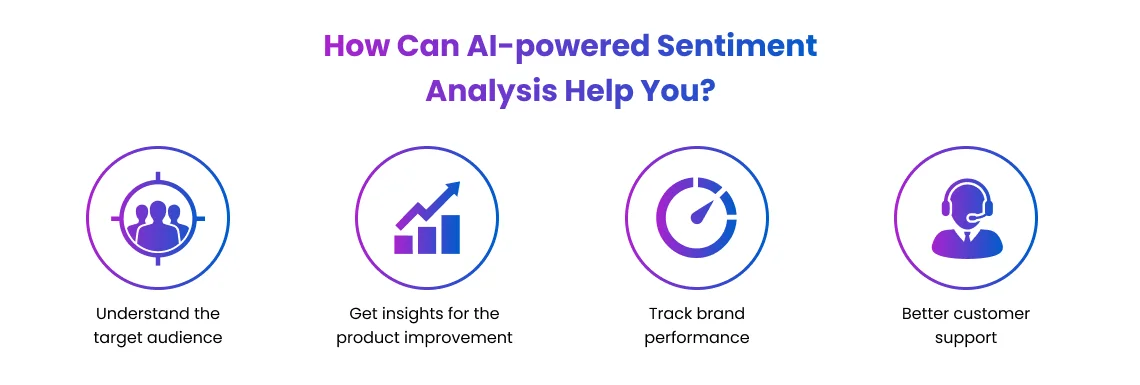
Our online shoppers’ favorite online shopping store – Amazon, uses such an integrated AI-powered product recommendation system across every step of the buying process. It helps Amazon eCommerce Store to improve customer experience with data-driven decision-making systems.
Not just Amazon, but many online shopping stores like Myntra, Nyka, Urbanic, etc., use distinct data analysis methods, which we have already discussed above in the “Big Data Management” section.
4. Better Price Optimization
As per Deloitte Research, in the age of value, price is still the defending champion. And that’s the reason why many customers prefer to do business with direct retailers. Also, many factors affect the product price: previous variations in the price, production type, brand reputation, competition, season, changes in business strategies, etc.
In this age, people prioritize prices along with quality, but for businesses, it is paramount to predict the right product price and optimize it as per the market trends. And, of course, when a business is associated with a range of products.
For such big businesses, having AI-powered software can be of great help. Your AI-powered valuation software can consider all those factors for product price prediction and optimization and put your service costing worries at ease.
AI price optimization software can scan bulky data, refer to endless pricing scenarios, and suggest the most reasonable price, which results in the best business profit.
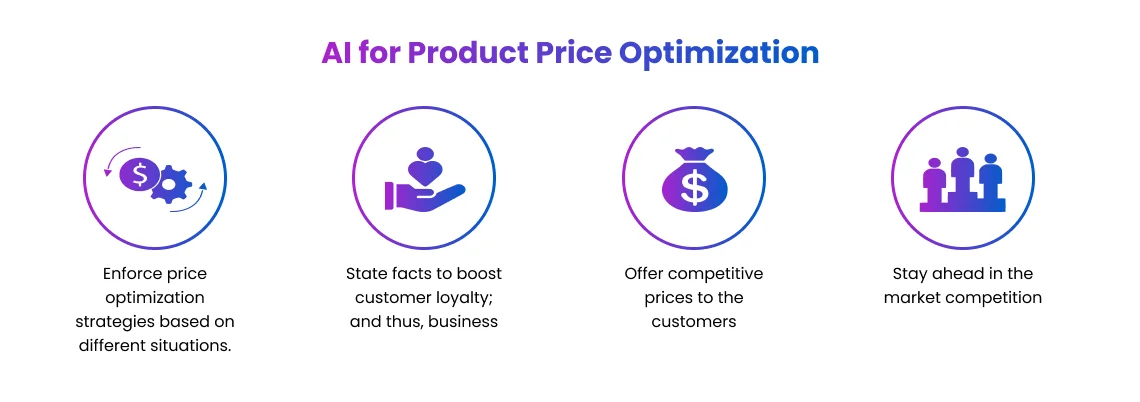
To understand it more clearly, let’s take one example of a popular cab booking app – Uber.
When using this app, all you have to do is to enter the pickup and drop location. And then, the route and travel fare are decided by AI based on the current situation – weather, current petrol prices, availability/chances of the return trips, etc.
In the case of online shopping, Amazon also uses AI and business process automation to avail the limited-period price drop alert on products for particular users based on their new interest discovery.
5. Improved Sales and Marketing
People working in the sales or marketing departments know the value of time. For better business lead generation and sales conversion, it demands the right approach, strategy, and appropriate solution, which must be executed at the right time.
Knowing the right time and opportunity to promote the business offering to the right customers is important for better conversations. Of course, human brains can do all these things pretty creatively, but at certain limits. But when dealing with a wide scope, AI automation tools come in handy.
Create Situational Content Marketing Strategies
In this internet age, users every single day discover many references for the information they are looking for. But how many of those references are making impressions? When thinking about business marketing, creating content that sets higher business standards is the foremost thing.
For setting such higher standards, you need a powerful content strategy that engages the target audience with the content they find factual and valuable. Here, the content has many forms, including blogs, infographics, podcasts, whitepapers, case studies/success stories, email marketing, etc. And to plan, manage, and track their performance, the marketing team needs the help of AI to analyze an existing pool of content and make further strategies to market it effectively.
Today, many marketing professionals take the help of AI tools to discover the right and most searched keywords to target marketing content. Then they use AI analytics tools to discover the audiences’ interests, AI-based advertisement tools to target services based on interests, schedule the content to be published, track the performance, and so on.
Effective Sales Forecasting
Every business needs sales conversions to continue the journey and earn profit. But sales conversions can’t be done instantly. At first, you’ll have to set the target for the sales based on the current business performance, make investments for the lead generation, target sales pitches, and then after lots of discussions and bargaining, the deal is closed.
Ensure that the sales forecasting can’t be done randomly, it demands facts and figures. And if the defined sales conversion target is based on the results and the efforts are still not making up to the decided bar, then there is a need for checking the reasons where efforts left off. Maybe efforts are doing well, but the competitors are running more discounting campaigns.
It is vital to do accurate sales forecasting for better calculation of purchases, term-based performance, and resource allocation.
AI-integrated CRMS (Customer Relationship Management Software) enables sales professionals to analyze all previous deals and business data to target sales drives, track sales and conversations, and more importantly, to get accurate sales predictions based on existing performance data.
How Does AI Automation Help in Sales?
- Know the buyer’s journey
- Gain insights on business sales strategy blindspots
- Tips to improve sales performance
- Better schedule management
- Boost customer value; and thus, retention rate
6. Competitive Intelligence
For a business, it is paramount to know what competitors are up to and what trends they are following. After all, apart from your strategic marketing and sales practices, observing competitors’ moves and using your own business analysis to plan the next tactical moves is always the best practice that will never disappoint you for the outcome!
But when your business focuses on the congested marketplace to secure a unique business position, competitor analysis becomes even more vital. And when the need for this competitor analysis goes to a certain extent, then Artificial Intelligence holds your hands and takes all your burdens.
Artificial Intelligence for competitor analysis automatically tracks every tiny, single movement of your competitors in the target marketplace, like your private spy. It will help you track everything from competitors’ products to people to promotions, so you can make the most informed decisions intelligently.
Benefits of AI-Powered Business Competitive Research
- Capture competitors’ every move positive move for business positioning
- Know target market thoughts on competitors
- Discover new market opportunities and potential threats to the business
7. Supply Chain Management
Having the right supply chain management is important for businesses to operate as planned that benefit the most. Indeed, that requires information about situational changes in market demands. And if those market insights are not gathered and utilized timely, then could make business struggle with supply chain fragility with stock shortages in the high demand scenarios.
Hence, to avoid such stock shortage and over-sufficiency situations, AI-powered supply chain management software can help to consider all these stock management scenarios.
Models with Artificial intelligence and predictive analytics capabilities analyse the sales history and market trends to predict future sales. With this insight, the company can deploy the staff appropriately, along with accurate inventory level management.
The AI-powered inventory management system measures the stock of the product with every new shipment request. And once the stock number goes down, it directly raises an alert for vendors to stock up on that particular product quantity.
Benefits of AI-Powered Inventory Management System
- Shows records of inventory items (In/Out)
- Raises alerts when the stock goes down
- Sends a notification when a new shipment order is received
- Tracks the shipment in real time
8. Customer Support Services – Chatbots
When planning to make your business easily approachable to customers, then creating a customer service center becomes vital. It’s not like once sold the product, then your responsibility as a business also lessens because customers might have queries before and after the purchase related to the product service package, use cases, return/replacement procedure, product service requirement, etc.
There are countless queries a customer could have. Hence, many customer service centers are using AI-based customer service software to offer them 24/7 customer support with pre-recorded calls and intelligent chatbots. And when things go difficult, customer support calls and AI-powered chatbots redirect them to the relevant articles or a dedicated representative if a customer insists.
An AI-powered chatbot uses Natural Language Processing and Sentiment Analysis to know customers’ requirements and respond with better solutions.
The best thing about this solution is that it prevents customer representatives from working on the same ticket redundantly and saves ample time to utilize it to provide support to other customers. In reference to this, Argos labs confirms for intelligent customer service software, saving their 40-500 hours monthly and using it in other business competencies.
A global bank survey affirms that after investing in AI-powered customer service software, they noticed decreasing numbers in error reductions, which helps to save them $1M annually.
Why Should Businesses Have An Intelligent Chatbot Implemented On The Website?
- Customers can use chatbots to get quick information without any time barrier
- Chat-based insights to show customers’ interest-based products/services
- Helps extensively to generate new leads for new products/services
- Boosts customers’ engagement and trust
9. Recruitment
In this busy and continuously evolving corporate world, where new positionings are opening up, hiring a few right people from a bucketful of CVs is time-consuming work for HR professionals. But using AI-powered hiring software results in reducing HR professionals’ hiring efforts at certain levels.
For example, many companies have implemented AI recruitment software to:
- Automate candidate CV analysis and match recruitment parameters (like role and responsibility, skill & degree eligibility criteria, salary expectations, etc.) for the CV screening round.
- Prepare basic technical interview questionnaires for the primary interview stage based on the job description.
- And once the candidate clears these two stages, then this software notifies the HR team about the candidate’s interview scores to further conduct the job interview rounds.
Intelligent AI Recruitment Software Outcome Statistics:
- One Fortune Business Insights report projects $23.98 billion – $39.90 billion worth of investment in smart HR software solutions during the forecast period 2022-2029 at a CAGR of 7.5%.
- Capterra’s research says that 75% of recruiting managers use SaaS HR solutions to keep track of job applications. Among them, 94% of respondents agreed that using digital HR solutions has improved their hiring processes.
Why Should Businesses Adopt Intelligent SaaS Recruitment Software?
- Cloud-hosted; so can be used from anywhere and on any device
- AI-powered to find the right candidate profiles
- Increases candidate engagement with the recruitment process
- Maintains recruitment transparency
- Intelligent analytics for better, informed decision making
10. Cybersecurity
With everything being digital is also resulting in an increase in the cyberattack, which can damage the business reputation. As hackers are becoming intelligent with technological evolution, businesses should also become intelligent by making the right use of technology to create a defence against destructive cyber attacks.
AI process automation for cybersecurity improves visibility across potential cyber threats and sets a vigilante digital defence network layer. The elite AI adopters clearly illustrate the importance of AI cybersecurity process automation.
Unauthorized devices comply with traditional technology security policies, which are not easy to detect. But the AI-powered network radar can suspect unusual requests appearing in the radar through end devices. And with that behavior study, AI can stop those threatening requests and limit endpoints to further access the privileged data.
As per the IBM study, AI has helped many businesses to reinforce their network security by carefully monitoring 95% of network communications and 90% of endpoint devices for network vulnerabilities with 30% faster threat detection.
Not just that, it has also revealed that businesses invested in AI process automation for security purposes have also received a 40% jump in returns and noted a reduction in data breach cost by at least 18%.
How Businesses Are Using AI Automation For The Security Purposes?
- Endpoint discovery and asset management
- Vulnerability assessment and penetration testing
- Patch management
- Access management
- Threat simulation
- Identity management
- Secure data lifecycle management
11. Compliance
Data is an asset to companies that helps to better run their business in the target market. As businesses store sensitive data, it becomes important to ensure its security and make the business complaint to the respective industry and government regularizations.
Such AI-powered sensitive data processes help to reduce human efforts; and thus, result in errorless data processing and avoid further compliance issues and frauds.
AI with RPA solutions have a wide application in the financial sector, especially to detect and report fraud threats.
As per one US banking sector case study, many US-region banks are leveraging Robotic Process Automation to automate to improve the anti-money laundering/theft processes for KYC process automation and careful process monitoring. This adoption has helped them increase the regulatory complaint due diligence costs by 75%.
How Does Compliance Automation Benefit Businesses?
- Eliminates unauthorized access to privileged data (customer data, business-critical process data, etc.)
- Thorough verification of business process logs against regulations and policies
- Automates low-priority value regulatory reporting tasks
- Stays compliant with frequently modified regulatory requirements
- Errorless onboarding and due diligence processes
12. Better Time and Expense Management
AI automation allows businesses to save ample time by automating mundane tasks and let them focus on core business competencies, resulting in better productivity improvement. With all these, task automation enables businesses to achieve better outputs in less time at the lowest possible cost.
How Does AI Automation Save Businesses Time and Cost?
- Ensures the automation of production processes with consistency
- Less process computation errors
- Saves time to focus more on high-value tasks
- Improves business efficiency and productivity
5 Key Considerations For AI Process Automation
Now, we all know the importance of implementing AI automation for business processes. However, to achieve it, businesses need to consider the following factors before and after the AI process automation.
1. Robust Data Policies
AI processes rely on data extensively. The more accurate and to an extent the data is provided to the intelligent process automation system, the better-informed decisions it can make. In order to reap out maximum benefits from business process automation, it is important to create and enforce data policies across the enterprise.
2. Change Management
Any business adopting modern technological solutions must ensure the implementation of change management policies. Because lacking to establish a change management process often creates difficulties to meet the technology modernization insertion challenges.
In the case of process automation, change management is the key to complying with the process. When dealing with business process management, change management helps executives closely monitor the processes and optimize them as per changes in the business models and technological shifts.
3. Training Programs
In the world of technology, continuous improvement is a never-ending process. And in this, being updated with technology trends and applications are imperative to ensure the better efficiency of business processes, which is done by designing frequent employee training programs with new updates.
4. Standardization
When setting business processes for standardization, it can unlock many benefits for businesses, from efficiency in the production line to higher, better productivity, business intelligence, robotic process automation, intelligent analytics, and compelling customer experience improvement.
As only repetitive processes are automated across the business, it demands utmost efforts and technological support to redesign and streamline business processes to avoid further bottlenecks. In doing so, many organizations also revisit the distinction between business intelligence vs business analytics to better align their data strategies with performance and forecasting needs.
5. Picking The Right Toolset
With the technological revolution and increasing demand for more reliable technology to automate business processes, the marketplace is flooded with numerous AI-based process automation tools.
And these automation tools are segmented into categories like content ingestion, document ingestion, Natural Language Technology (NLT), and conversational AI. Hence, to achieve the best process automation output, it becomes essential to pick the right combination of tools.
Read also: How RPA Can Drive Enterprise Efficiency and Revenue Growth?
The Next-Gen Intelligent Process Automation Is Here!
Do you think of setting up an automated insurance claiming process, which automatically collects all accident-related data, and issues the insurance claiming process with a thorough investigation (either through call or chat) and analysis, and that too, even without much human effort? Well, that age of automation is already here and evolving!
Cutting-edge technologies like AI, ML, NLP, RPA, IoT, and OCR (Optical character recognition) are already dominating the automation marketplace and are continuously evolving to make human lives much more meaningful and productive.
The next step in the automation process is combining all these future-ready tech heroes to work as single loosely coupled solutions, which is also known as hyperautomation. And seems like it’s already in motion, as we are here talking about intelligent process automation (AI+RPA).
Read more: RPA Trends of 2024 Changing The Way Businesses Work
The future evolution of AI and other intelligent technologies will indeed make humans collaborate with the ecosystems closely and establish an intelligent ecosystem.
In short, intelligent process automation is far and wide and has much more potential to unlock.
How Can MindInventory Help Your Business With AI Automation?
As AI-based process automation is changing the paradigm of business functions, it’s right to embrace AI for your business. And to power business processes with intelligent automation, you’ll need the help of experts. That’s where MindInventory comes into the picture.
MindInventory, a leading AI development company, has a dedicated team of intelligent software engineers with extensive expertise in working on AI and ML-based projects.
The team has worked on numerous AI-based projects, among which – Passio lives in our heart. We’ve provided AI/ML development services to them to help them create a solution that enables users to choose the right-fit interior color suggestions based on the construction. This color selection automation has been helping the client to save ample time to spend on other brainstorming and planning competencies.
Likewise, MindInventory can help you with various AI projects, like cloud-based process automation, AI-powered recruitment software development, CRMS, and much more.
All you have to do is send us your AI project requirement documents, and our dedicated team will reach out to you to help you hire AI developers from our who meets your requirements.
FAQs on AI-Powered Process Automation
If you see, both BPA (Business Process Automation) and RPA (Robotic Process Automation) focus on automating business processes. Furthermore, BPA has initiated the use of RPA capabilities to meet large-scale automation needs tactically with better efficiency. In short, BPA is a solution made with AI+RPA capability.
Basically, AI strategy for business process automation can be planned in four simple steps: Discovering the right problems, Defining business outcomes, Collecting and organizing business data, and Choosing the right technology stack to accomplish the requirements.
Well, it depends on many factors, including the level of business process, intelligence, and accuracy you’re aiming for, the technology stack, the amount of data you’re going to feed to the system, the complexity of automation, the size of business, required dedicated support, etc.






